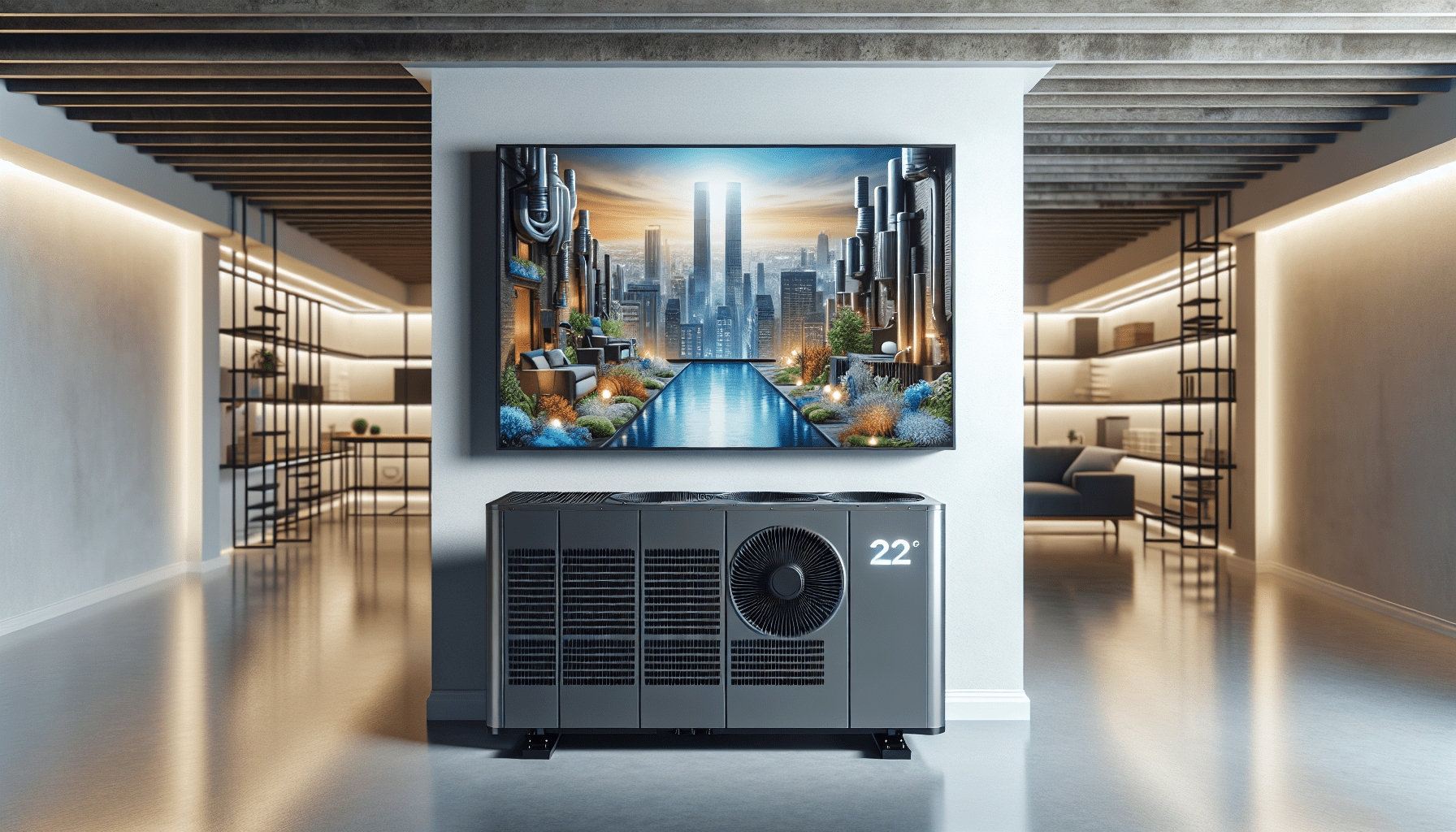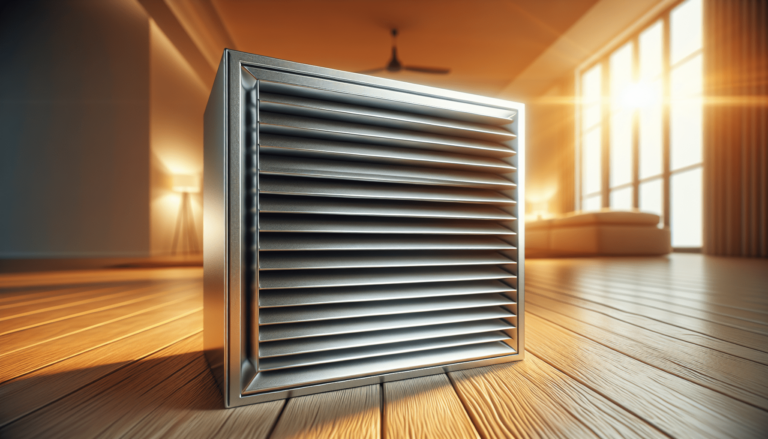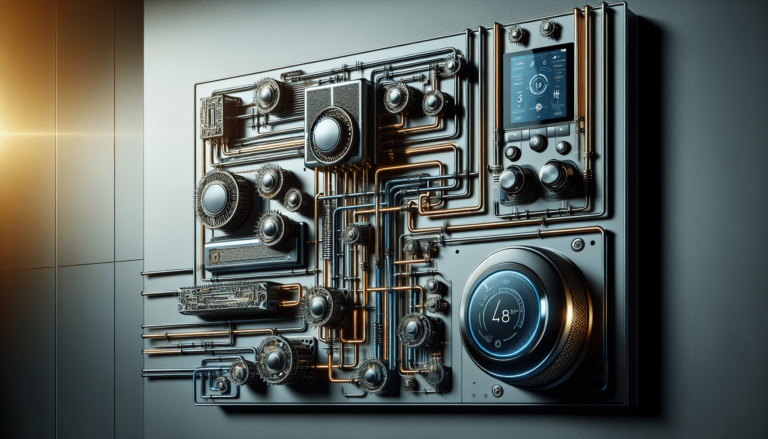

HVAC Services
Get Professional Repairs From The Area's Trusted HVAC Technicians. Ask About Our Services! We Offer Professional Heating & Cooling System Repairs And Guarantee Long-Lasting Results.
Got Question? Call us: (850) 678-2665Financing
Best Practices For Integrating HVAC In Basements
Optimize comfort and efficiency in your basement with these essential HVAC integration tips. Learn about equipment selection, placement, and maintenance best practices.

When it comes to optimizing your basement’s comfort and efficiency, integrating HVAC systems requires careful planning and execution. “Best Practices For Integrating HVAC In Basements” outlines essential tips and strategies to ensure your underground living space remains cozy and energy-efficient all year round. From selecting the right equipment to proper placement and maintenance, these best practices help you maximize the potential of your basement while maintaining a comfortable environment. By following these recommendations, you can enhance air quality and ensure consistent temperature control, making your basement a welcoming part of your home. For expert advice and services, consider reaching out to Tempacure Heating and Air Conditioning at their Niceville, FL location.
Have you ever considered how to keep your basement comfortable throughout the year? It’s a common dilemma faced by many homeowners, whether you’re transforming that underground space into a cozy family room, a stunning man cave, or just a practical laundry area. Well, I’m here to help guide you through the maze of integrating HVAC in your basement—and we’ll make it fun while we’re at it! So, let’s roll up our sleeves and dive into the enthralling world of heating, ventilation, and air conditioning (HVAC), shall we?
Why HVAC in Basements?
Before you start drilling holes and running ducts all over the place, you should understand why an effective HVAC system is necessary for basements. Many basements are naturally cooler due to their underground positioning; however, they can also become very humid or cold, making them uncomfortable or even hazardous for certain uses. Proper HVAC can control these elements, providing a comfortable and safe environment for any intended use.
The Undeniable Benefits
First, let’s get into the juicy bits—the benefits. Why would you spend your hard-earned money on HVAC for your basement? Here are some compelling reasons:
1. Comfort: Regulate temperature throughout the year, ensuring your basement is a welcoming space.
2. Moisture Control: An HVAC system helps manage dampness, reducing the risk of mold and mildew.
3. Air Quality: Improve overall air quality, making the space safer for you and your family.
4. Property Value: A finished, comfortable basement can actually increase your home’s resale value.
Choosing the Right HVAC System
You can’t just install any HVAC system and call it a day. No, sir! The type of HVAC system that will best suit your needs depends on the specific characteristics of your basement and your existing HVAC setup.
Central Air Systems
If you’re already running a central air system in your home, extending it to the basement may seem like the most straightforward option. However, this requires careful consideration and professional expertise. Here’s a simple table to help you weigh the pros and cons:
| Pros | Cons |
|---|---|
| Covers whole home | Complex and costly installation |
| Consistent temperature | Requires additional ductwork |
| Uses existing HVAC infrastructure | Potential for system overload |
Mini-Split Systems
Mini-splits are a great alternative for basements, especially if you intend to use the space frequently but want to control its climate separately from the rest of the house. These systems are energy-efficient and do not require ductwork.
| Pros | Cons |
|---|---|
| No ductwork needed | Higher initial cost |
| Variable temperature control | Requires wall-mounted units |
| Energy efficient | Limited cooling/heating capacity |
Portable & Window Units
Although less common for basements, portable and window units can provide a good temporary solution if integrating a full HVAC system isn’t feasible.
| Pros | Cons |
|---|---|
| Low initial cost | Limited effectiveness |
| Easy installation | Requires window or exhaust outlet |
| Portability | High energy consumption |

Installation Considerations
Installing an HVAC system in a basement isn’t exactly a weekend DIY project (unless you’re a seasoned pro, in which case, hats off to you!). There are several factors you must consider:
Ductwork and Ventilation
If you’re extending your existing HVAC system, you’d need to install additional ductwork, which can be a bit of a headache if you don’t have prior experience. Proper ductwork is crucial for efficient heating, ventilation, and air conditioning to ensure optimal air distribution.
Tips for Ductwork Installation
- Use Insulated Ducts: To minimize heat loss.
- Seal Joints: Use mastic sealant or metal tape to seal all duct joints.
- Proper Sizing: Ensure your ducts are appropriately sized for your system and space.
Insulation
You’ll want to insulate your basement adequately for the HVAC to perform efficiently. Proper insulation helps maintain the desired temperature and reduces energy costs.
Types of Insulation
- Fiberglass Insulation: Cost-effective and easy to install.
- Foam Board Insulation: Provides excellent thermal resistance.
- Spray Foam Insulation: Effective but on the pricier side.
Permits and Codes
Before you go all gung-ho on this project, remember to check your local building codes and obtain any necessary permits. Trust me, dealing with a citation later is no fun.
Drainage and Moisture Control
Basements are notorious for moisture issues. You’d want to address any existing damp spots or leaks before installing an HVAC system. This might involve improving drainage around your home, installing a sump pump, or waterproofing your basement walls.
Maintenance Tips
So, you’ve done it—you installed the perfect HVAC system for your basement. Now, don’t just set it and forget it. Maintaining your HVAC system is key to ensuring its longevity and efficiency.
Regular Inspections
Schedule regular inspections, ideally twice a year. This not only ensures optimal performance but also helps you catch minor issues before they become major headaches.
Filter Replacements
Yes, the good old HVAC filter! Make it a habit to check and replace filters regularly. Dirty filters can hinder airflow and reduce the efficiency of your system.
Professional Maintenance
Occasional professional maintenance can go a long way. Experts from companies like Tempacure Heating and Air Conditioning (325 Cedar Ave S Suite B, Niceville, FL 32578, (850) 678-2665, Tempacure) can perform deep cleaning and checks that you might not manage on your own.
DIY Tips
- Vacuum the Vents: Remove dust and debris from air vents.
- Check for Leaks: Inspect ductwork for any leaks or damage.
- Monitor Thermostat: Ensure your thermostat is functioning correctly and replace batteries if needed.

Energy Efficiency Considerations
We all want to save a few bucks on our utility bills, right? So, focusing on energy efficiency is essential when integrating an HVAC system into your basement.
Energy-Efficient HVAC Systems
Invest in energy-efficient units. Look for high SEER (Seasonal Energy Efficiency Ratio) ratings to ensure you’re getting a system that performs well without breaking the bank on utility costs.
Smart Thermostats
Consider installing a smart thermostat that can learn your usage patterns and optimize energy consumption. They’re a little investment upfront but can lead to significant savings in the long run.
Insulation and Sealing
Ensure that your basement is well-insulated and that all windows, doors, and other openings are properly sealed to make your HVAC system as efficient as possible.
Ceiling Fans
Yes, ceiling fans can still help even in the basement! They can assist in distributing the conditioned air more evenly throughout the space.
Choosing the Right Professional
Unless you’re an HVAC wizard (and if you are, you probably don’t need my advice), you’ll want to enlist the help of a professional. Choosing the right professional can make or break your project.
Do Your Research
- Read Reviews: Platforms like Yelp or Google Reviews can offer insights into customer experiences.
- Check Credentials: Ensure the contractor has the necessary licensing and insurance.
- Ask Questions: Don’t hesitate to ask detailed questions about their experience and approach.
Tempacure Heating and Air Conditioning
Here’s a little shoutout to Tempacure Heating and Air Conditioning. Located at 325 Cedar Ave S Suite B, Niceville, FL 32578, this company has a strong reputation for reliability and expertise. You can reach them at (850) 678-2665 or visit their website at Tempacure HVAC.
Common Issues and Troubleshooting
Even with the best planning, things can go awry. Here are some common issues you might encounter and tips for troubleshooting them.
Uneven Temperature Distribution
This is a common problem where some parts of the basement are colder or warmer than others.
Solutions
- Check Ductwork: Ensure all ducts are properly sealed.
- Use Fans: Ceiling or portable fans can help distribute air.
- Inspect Insulation: Make sure there’s no insulation barrier preventing air distribution.
Excessive Humidity
Humid basements can lead to mold and mildew issues.
Solutions
- Dehumidifier: Installing a dehumidifier can effectively control moisture levels.
- Improve Drainage: Ensure adequate drainage around your home.
- Seal Cracks: Use sealants to cover any cracks in walls or floors.
System Overload
If your HVAC system is frequently cycling on and off, it might be overloaded.
Solutions
- Check Filter: A dirty filter can force your system to work harder.
- Inspect Thermostat: Ensure the thermostat is correctly placed and functioning.
- Consult a Pro: Sometimes professional intervention is needed to balance the system correctly.
Future-Proofing Your System
You don’t want to embark on this project again anytime soon. Future-proofing ensures that your HVAC system will serve you well for many years to come.
Scalability
Consider systems that can easily be scaled up or modified according to your future needs. A modular system, like a mini-split, allows you to add units as your requirements grow.
Technology Integration
Opt for modern HVAC units that can integrate with home automation systems. Voice control via Alexa or Google Home? Yes, please!
Regular Updates
Stay updated with industry trends and periodically consult professionals for system audits. Technology in HVAC systems is ever-evolving, and keeping up can help you stay efficient and cost-effective.
Getting Started
Now that you’re well-versed with the nitty-gritty of integrating HVAC in your basement, it’s time to get started. Remember, proper planning and the right professional help can transform your basement into the perfect space, whatever your heart desires.
Final Checklist
- Assess Your Needs: Define how you plan to use your basement and what kind of HVAC system will best meet those needs.
- Research Your Options: Understand the pros and cons of various systems like central air, mini-splits, or portable units.
- Consider Installation Factors: Plan for ductwork, insulation, permits, and moisture control.
- Focus on Maintenance: Develop a maintenance schedule to keep your system running smoothly.
- Consult Professionals: Seek professional advice and services for installation and maintenance.
And there you have it! Whether you’re making a kid’s playroom, a swanky home-office, or just a more lovable laundry dungeon, integrating an HVAC system will ensure the space is comfy, safe, and enjoyable for years to come. So go ahead, take the plunge—you won’t regret it.
For professional advice or help, don’t forget to reach out to Tempacure Heating and Air Conditioning at (850) 678-2665 or click on over to Tempacure HVAC. Happy basement transforming!







